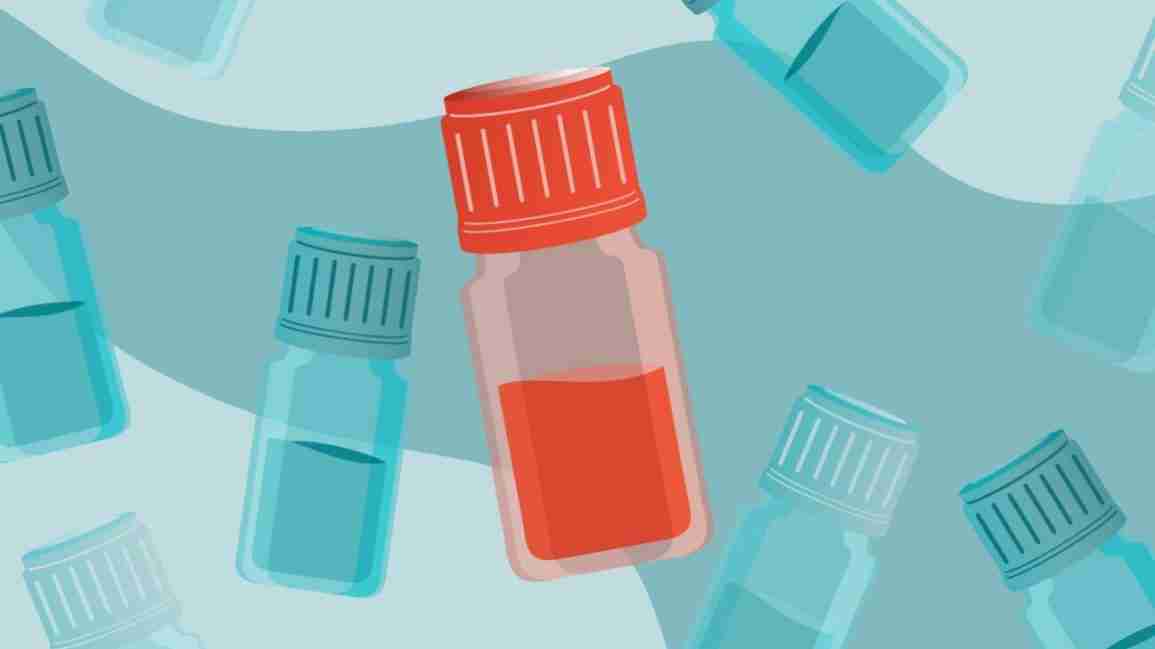While research suggests there are health benefits, the FDA doesn’t monitor or regulate the purity or quality of essential oils. It’s important to talk with your healthcare provider before you begin using essential oils and be sure to research the quality of a brand’s products. Always do a patch test before trying a new essential oil.
Alternative medicine has become a popular option in today’s healthcare world, and with it comes the use of essential oils. These oils can be used for a variety of reasons, from aromatherapy to prevention of illness.
If you don’t use a lot of an oil, you may wonder if they expire. The answer is yes, they do!
We’ll take a look at why essential oils expire, and we’ll review the average shelf life of specific essential oils, as some last longer than others. Read on.
As soon as you open a new bottle or container of essential oils and it comes into contact with oxygen, a process called oxidation begins. The oxidation process involves the changes of oxygen bonds between cells into carbon bonds.
When an oil comes into contact with oxygen, light, and heat, its composition begins to change. Over time, it starts to lose its strength and effectiveness. This is why most essential oils are sold in amber-colored bottles — the darker glass provides better protection against ultraviolet light.
Does this mean that essential oils spoil or “go bad?”
Essential oils don’t spoil like food does, but they do change over time. Because it’s hard to determine what the oils have changed into, it’s also hard to determine whether or not they’re safe to use.
The bottom line is, don’t inhale expired essential oils or use them on your skin after they have expired.
Most essential oils have a shelf life, but this shelf life can vary according to the type of oil. These tables show the average shelf life of specific oils.
Here are some tips for how to extend the shelf life of your essential oils.
Reduce exposure to oxygen
To prevent your essential oils from expiring early and to ensure they stay potent, minimize the amount of time the cap is off the bottle. The longer the bottle is uncapped, the more the oil is exposed to the oxygen in the air.
Also, be sure to place the cap back tightly on the bottle. If it’s not screwed on tightly, oxygen may still get into the bottle and begin the oxidation process.
Keep away from light and heat
The best place to store your essential oils is in a cool, dry place like a kitchen cabinet or your bathroom medicine cabinet. Keep your oils away from direct sunlight or any other direct heat and light sources.
It’s also best to buy or use dark-colored glass containers for your oils. The more opaque the glass, the more protection it offers against oxidation.
Use smaller containers to store your oils
Smaller containers will prevent oxygen from being trapped in the bottle when it’s opened. This will prevent oxidation from happening earlier than it should and will extend the life of your oils.
Once you’ve opened a bottle of an oil, you should keep track of how long you’ve had it. A handy way to do this is to take a marker and write the date that you opened it on the label.
Use the charts above for a quick reference for shelf life, and throw out the oil once it hits its expiration date.
If your oil isn’t dated, here are some other indications that it might be time to toss it:
- the smell of the oil has changed since you first opened the bottle
- the color has changed, or it has become cloudy
- the consistency is thicker or thinner than it was when you opened it
If you have expired essential oils, you might be tempted to just dump them down the sink to dispose of them. However, there’s a better way to get rid of those old oils without clogging your pipes or harming the environment.
Here are some tips to dispose of your oils properly:
- Check with your city/county/municipality to see how to dispose of your oils. Rules and regulations can differ from place to place, so be sure to get familiar with your area’s procedures.
- If you have a waste management company that picks up your trash, contact them to ask how to best dispose of your oils. They’ll likely have a procedure for chemical product disposal.
Never pour your essential oils down the drain. In addition to clogging your pipes, your oils may find their way into your local water supply and can harm the environment.
Once you’ve disposed of your expired oils, you may want to reuse or recycle the containers they came in.
To do this, first place them in a sink and fill them with soap and water. Let them soak overnight and then rinse and dry. Now you can use them for whatever you’d like!
If there’s any lingering smell, you can soak them in one part water and one part rubbing alcohol.
Essential oils do have a shelf life, but there are many ways to ensure that they stay potent and fresh.
Make sure to minimize the amount of time they’re exposed to light and air, and you’ll be able to enjoy your oils for a long time!




